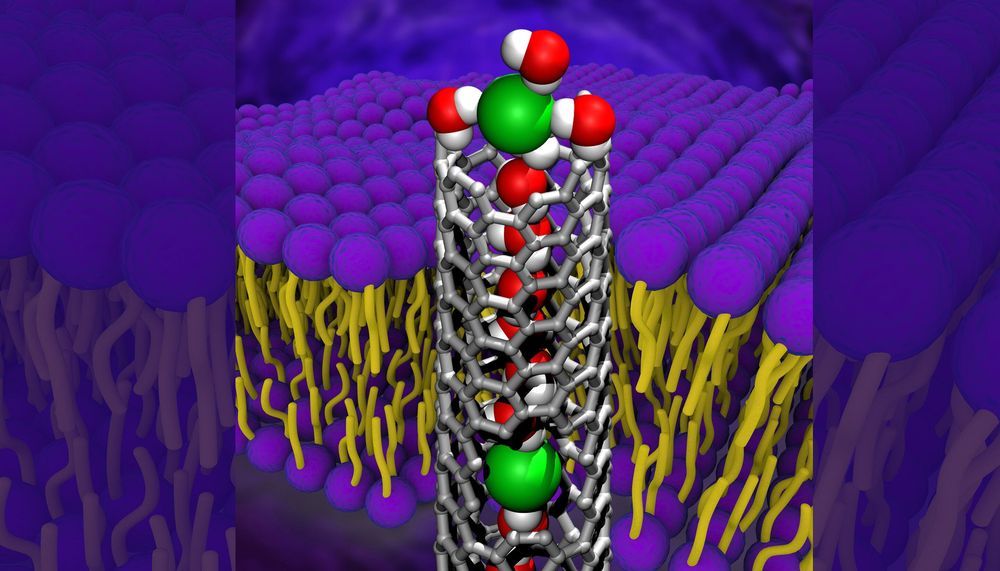Trying to determine how negatively charged ions squeeze through a carbon nanotube 20,000 times smaller than a human hair is no easy feat.
Not only did Lawrence Livermore National Laboratory (LLNL) scientists do that but they found that those ions are unexpectedly picky depending on the anion (a negatively charged ion). The research appears in ACS Nano.
Inner pores of carbon nanotubes combine extremely fast water transport and ion selectivity that could potentially be useful for high-performance water desalination and separation applications. Determining which anions are permeable to the nanotube pore can be critical to many separation processes, including desalination, which turns seawater into fresh water by removing the salt ions.
